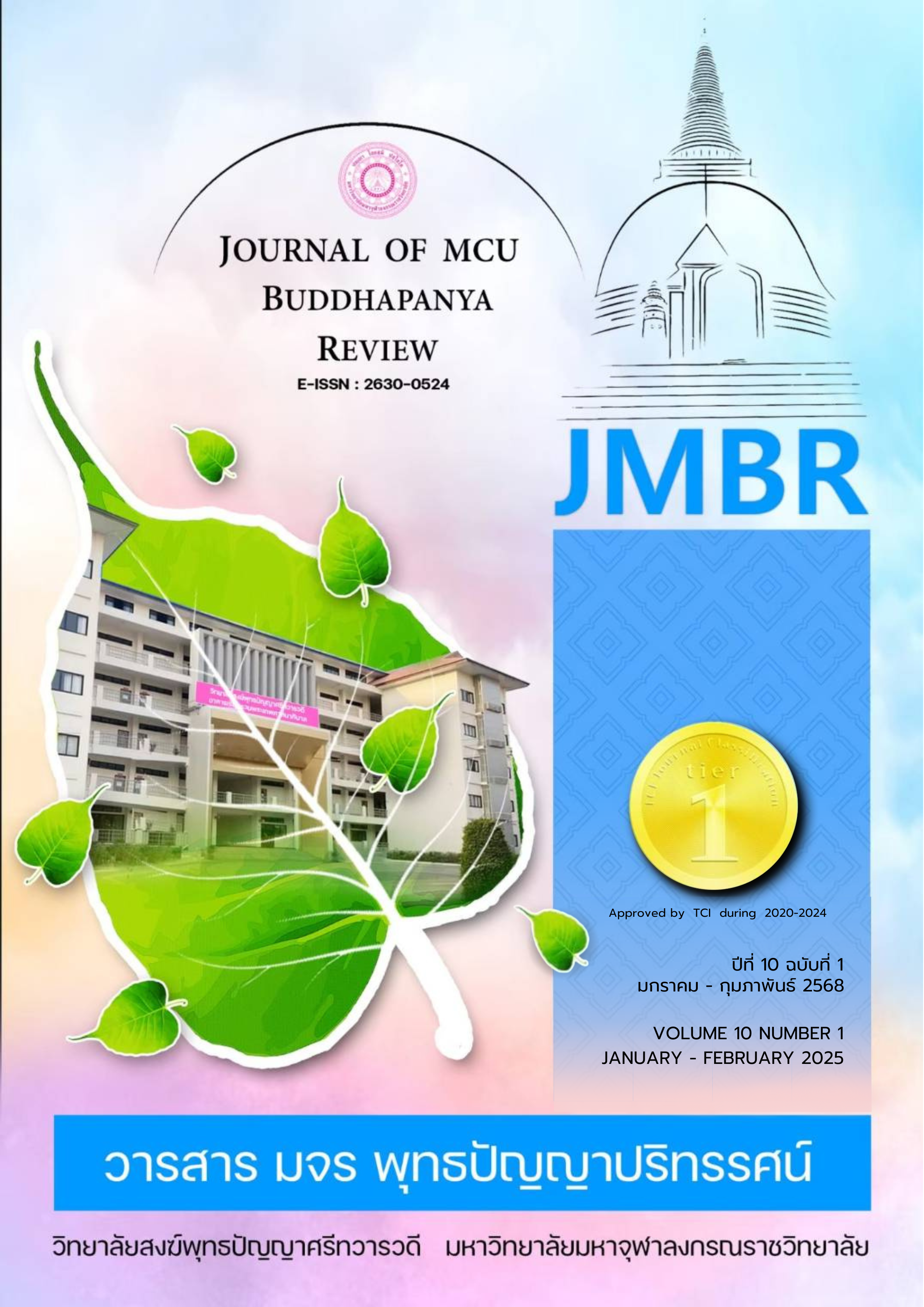PROJECT STUDY ON THE EDUCATIONAL MANAGEMENT MODEL OF KLEDKAEW BILINGUAL SCHOOL
Keywords:
Educational Management Model, Bilingual School, Internal SupervisionAbstract
This study arises from the need to enhance the educational management of Kledkaew Bilingual School, located in a special economic zone that is experiencing rapid economic growth, particularly in the Eastern Economic Corridor (EEC). The region requires an educational system capable of developing students’ skills and knowledge in alignment with economic and social changes. Consequently, this research aims to develop an effective and standardized management model that improves both student and staff quality, while also serving as a prototype that can be applied to other schools within similar special zones. The objectives of this study are: 1) to analyze the context and actual conditions of Kledkaew Bilingual School’s management, providing a foundation for developing a standardized management model; 2) to establish guidelines for enhancing student quality and curriculum, promoting students’ potential based on their individual abilities; and 3) to develop strategies for improving teachers’ and staff capabilities in teaching, supervision, and evaluation. The research employed qualitative methods, including content analysis and descriptive writing. The findings indicate that the developed management model is effective and meets international standards. It encompasses objectives, concepts, principles, context, factors, processes, quality, and success conditions. The administrative structure is divided into four areas: Academic Affairs, Budget Management, Personnel Management, and General Administration. The educational program follows a Bilingual Program for children aged 3-6 years, focusing on balanced development in physical, emotional, mental, social, and intellectual aspects, through instruction in both Thai and English. The internal supervision process comprises six steps: problem identification, planning, preparation, implementation, evaluation, and reporting. Quality assurance is conducted in accordance with the 2018 Ministry of Education regulations, covering three main standards: child quality, management processes, and child-centered experiential learning. In summary, the school’s management model is clear and effective, supporting systematic curriculum development and supervision to ensure the highest standards of educational management.
References
Aguilar, F. J. (1967). Scanning the business environment. Macmillan.
Baker, C. (2011). Foundations of bilingual education and bilingualism (5th ed.). Multilingual Matters.
Bush, T., & Bell, L. (2002). The principles and practice of educational management. Paul Chapman Publishing.
Cummins, J. (2000). Language, power, and pedagogy: Bilingual children in the crossfire. Multilingual Matters.
Deming, W. E. (1986). Out of the crisis. MIT Press.
Department of Local Administration. (2008). Regulations on the promotion of local governance. https://www.dla.go.th/upload/regulation/type1/2551/06/
García, O. (2009). Bilingual education in the 21st century: A global perspective. Wiley-Blackwell.
Kantapat, M. (2018). Educational management in bilingual schools (Master’s thesis). Srinakharinwirot University.
Maream, N. (2016). Research methods in education (8th ed.). Silpakorn University Press.
Ministry of Education. (2007). Ministerial regulations on criteria and methods for decentralization of administration and educational management, B.E. 2550. Royal Gazette.
Ministry of Education. (2018a). Ministerial regulations on educational quality assurance, B.E. 2561. Royal Gazette.
Ministry of Education. (2018b). Standards for basic education, B.E. 2561. Royal Gazette.
Ministry of Education. (2019). National standards for early childhood development centers. Royal Gazette.
National Education Act B.E. 2542 and Amendment (No. 4), B.E. 2562, Part 2: Administration and Management of Education by Local Administrative Organizations, Section 41. (2019).
Natthakorn, P. (2018). Factors affecting the success of bilingual schools (Master’s thesis). Burapha University.
Office of Non-Formal and Informal Education. (2012). Internal supervision processes in educational institutions. Office of Non-Formal and Informal Education.
Office of the Basic Education Commission. (n.d.). Academic document. http://academic.obec.go.th/images/document/1590998426_d_1.pdf
Thailand Development Research Institute. (2020). Educational development in special areas. Thailand Development Research Institute.
Warunee, L. (2017). Innovations and technologies in educational management (Master’s thesis). Ramkhamhaeng University.
Wattana, W. (2007). Analysis of the external environment of organizations. Chulalongkorn University Press.
Wheelen, T. L., & Hunger, J. D. (2002). Strategic management and business policy. Prentice Hall.
Downloads
Published
How to Cite
Issue
Section
License
Copyright (c) 2025 Journal of MCU Buddhapanya Review

This work is licensed under a Creative Commons Attribution-NonCommercial-NoDerivatives 4.0 International License.



